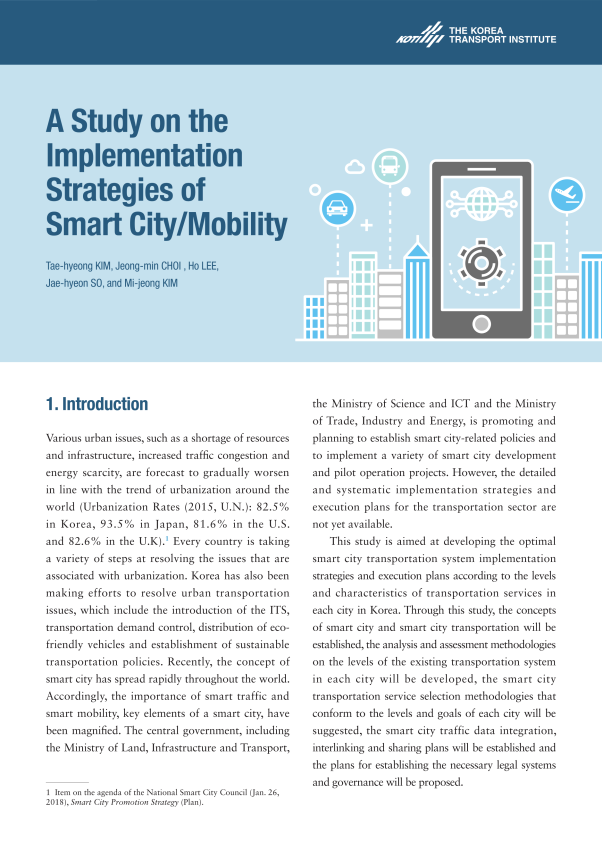Basic Report

RESEARCH
KOTI - Korea Transport institute
A Study on the Implementation Strategies of Smart City/Mobility
- Date
November 30 2018
- Page(s)
10 page(s)

Various urban issues, such as a shortage of resources and infrastructure, increased traffic congestion and energy scarcity, are forecast to gradually worsen in line with the trend of urbanization around the world (Urbanization Rates (2015, U.N.): 82.5% in Korea, 93.5% in Japan, 81.6% in the U.S. and 82.6% in the U.K). Every country is taking a variety of steps at resolving the issues that are associated with urbanization. Korea has also been making efforts to resolve urban transportation issues, which include the introduction of the ITS, transportation demand control, distribution of ecofriendly vehicles and the establishment of sustainable transportation policies. Recently, the concept of smart cities has spread rapidly throughout the world. Accordingly, the importance of smart traffic and smart mobility, key elements of a smart city, have been magnified. The central government, including the Ministry of Land, Infrastructure and Transport the Ministry of Science and ICT and the Ministry of Trade, Industry and Energy, are promoting and planning to establish smart city-related policies and to implement a variety of smart city development and pilot operation projects. However, the detailed and systematic implementation strategies and execution plans for the transportation sector are not yet available.